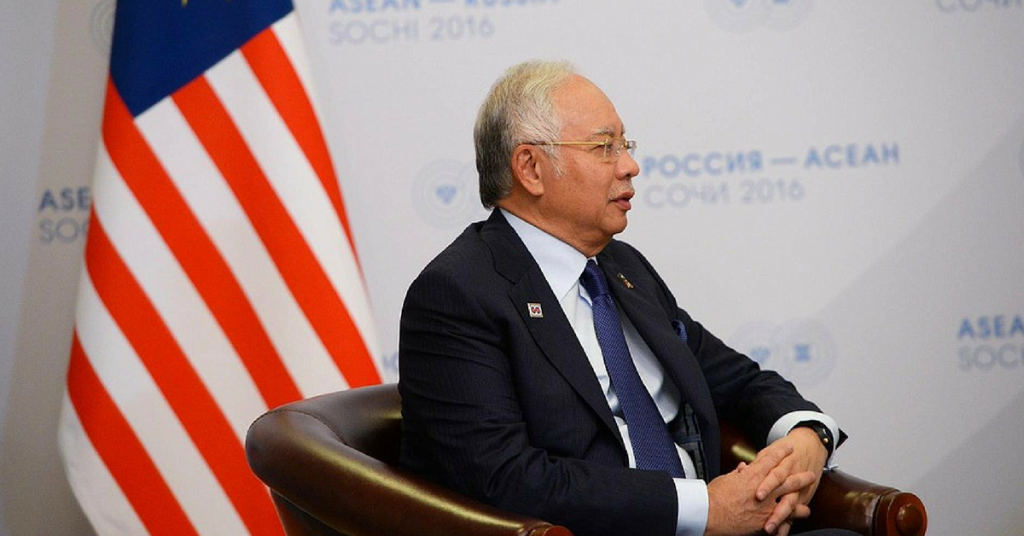- Prime Minister Najib Razak revealed the possibility of enacting a law against fake news, which has been a threat to national harmony.
- We like the idea of curbing fake news, but we have concerns about any conflicts of interest as long as the enforcing parties are tied to one political party.
- Instead, we should look at educating Malaysians to fact-check the news that comes to them.
At its core, the idea of curbing fake news is a good one.
Take the previous elections as an example. Netizens from all sides were spreading some level of slander and misrepresentations of politicians they didn’t like, turning the information landscape into a cocktail of both real and fake news that the public can’t possibly puzzle through.
We saw it more recently in the Trump versus Hillary campaign in USA. The election in on itself was already igniting strong emotions from both sides, and social media didn’t help things when players with an agenda mixed in their unique brand of fakeness, shared without a thought of sources or healthy debate.
Society is still figuring out how to have fair elections with social media firmly entrenched in the landscape. When people became able to curate their own news, we fall into echo chambers that only repeat what we already agree with back to us.
This is why I think that the possibility of the government enacting an anti-fake news law is a move lined with good intentions. I don’t need to tell you that with elections coming soon, now is perhaps the best time to launch any such laws.
“This kind of fake news is a threat to the country’s political stability and prosperity,” said Prime Minister Najib Razak at a press conference.
“This does not mean we control the Internet, the Internet is free but the freedom must exist with elements of accountability.”
But there are hairs to split about this law, so split them we shall.
It takes a gentle hand to create a law that can effectively curb fake news in Malaysia, instead of a tool that can be misused.
Having the right people to govern over the law is key. So if a law is indeed passed, who will be the decider if something is “fake news” or not?
The parties involved in deciding what constitutes fake news should ideally exist independent of any political party, to avoid conflicts of interest.
Without unbiased higher-ups, a fake news committee might be less keen on removing news that might impact their bosses, and have a more liberal hand on some of the news spread by the other parties. Any grey areas can potentially cause trouble, especially if the laws are vaguely worded to account for the nuances expected of social media.
In fact, the fake news enforcement team might even be biased to one side over the other subconsciously, even if they consciously try to remain unbiased.
But that’s not the only issue.
How effective would a law be at combating fake news?
Sometimes, it feels like those in power underestimate the true size and power of the internet.
Let’s just look at music piracy. The truth is, everyone has downloaded at least one song illegally. Piracy has been outlawed since before the internet, but authorities anywhere haven’t figured out how to combat it effectively, simply because there are too many people doing it, and too many sources happy to help the internet download free music for ad revenue.
A law to combat fake news might also ignore the nature of fake news.
No one enters the bright blue world of the internet believing that the earth is flat, or that vaccines cause autism. Instead, articles and posts are gradually spread to change opinions over time.

Thought changers start out by spreading posts or articles with messages that people generally already believe, perhaps dropping hints or implications. Once opinions are already geared towards one direction, then these netizens can more easily be swayed into believing more extreme claims.
At least, these are some of the tactics that have been used by propaganda accounts to spread fake news and sway votes during the American presidential elections.
Using the blackouts as one of the examples that Najib pointed out, the idea of a rigged elections would never have gained traction in the first place if there weren’t Malaysians who already believed that the government would pull such a trick.
Whether they actually did it or not is irrelevant to the fact that this seemed believable to some Malaysians.
In similar fervour, those in support of the ruling party are equally likely to believe that they would never do such a thing, simply because it goes against what they’re already conditioned to believe.
People are more prone to believing what already agrees with their worldview, and this is the mental loop that fake news thrives in.
Since the issues that govern fake news are so large and nuanced, could a law against it actually affect significant change among the population?
As said earlier, we think that curbing fake news is important. While Facebook moving away from news might hurt publications, it’s a worthy sacrifice to pay if it means that we have a social media landscape that leans towards journalistic integrity.
Unfortunately, Facebook’s first crack at curbing fake news has raised some eyebrows.
Laws can only do so much. Instead, we think that the better solution to solving fake news is to actually empower netizens with the knowledge of how to spot real or fake news, and the actual desire to do so.
Because the public is now the judge, jury and executioner on news, we think that it is more fruitful to actually educate Malaysians on how to spot fake news, no matter if it enforces their existing beliefs or not.
Sure, this isn’t a sexy or immediate solution. But a society with higher literacy can only bring good things. If the internet is supposed to be open and free, then it should be the responsibility of the public to police their own news.














